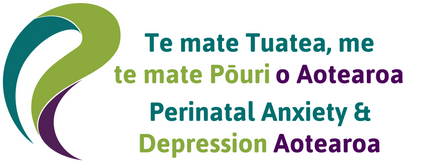Perinatal Matters
Addictions during pregnancy
Addictions
Cannabis use in pregnancy
Cannabis and Pregnancy
The health risks of cannabis in pregnancy have not been clearly established. For the woman they may include increased risk of respiratory problems, mood and other mental health problems, as well as financial and other social problems. Cannabis is often used mixed with tobacco, and the harm associated with tobacco in pregnancy is considerable.
While not clearly established, there is evidence from some studies of a risk of later developmental problems in babies born to cannabis dependant mothers. These include memory and thinking difficulties and an increased risk of ADHD.
There is also some evidence that babies exposed to cannabis in the womb might have a higher risk of mental health problems in later life and also be more prone to cannabis dependence themselves.
Cannabis and breastfeeding
There is not a lot of evidence about the effects on babies of cannabis in breastmilk. (This is because these kinds of studies have not yet been undertaken).
However, there is evidence that cannabis transmits to breastmilk and, as cannabis lasts a long time in the body, careful timing of breastfeeding, or expressing milk, won’t work as it does for alcohol.
It is reasonable to think that heavy use of cannabis while breastfeeding could have significant developmental effects on young babies.
Possible problems could include damaging brain development as has been shown to occur with cannabis exposure in the womb.
Cannabis and mental health
There is good evidence linking cannabis use to increased rates of mental health problems including depression, anxiety, and psychosis.
Do I use too much cannabis?
This is a difficult question to answer but there is evidence that any more than the occasional use of cannabis probably has negative effects. Certainly, regular or dependant use is likely to be associated with negative physical and mental consequences, which could impact on your chances of parenting to the best of your ability and giving your child the best start in life that you can.
We take the accuracy of the information we publish on our website very seriously, and update regularly. Please check back regularly for updates or contact us if you think the information is out of date, email us at [email protected]
Addictions
Seeking help for alcohol or addictions in pregnancy
More information is available from the Alcohol Advisory Council of New Zealand (ALAC), who have a website at www.alcohol.org.nz
It can be very difficult for someone to accept that they have a drinking or drug problem – it takes a lot of courage to admit it.
If you think your use of a substance is causing problems for you, there are lots of places to talk about the issues and get help. These include your GP, midwife, Plunket Nurse, and local Alcohol and Drug Service (which should be in the phone book under mental health services).
Addictions
References
- National Clinical Guidelines for the management of drug use in pregnancy breastfeeding and early developmental years of the newborn. Published by NSW Dept of Health 2006 (copyright Commonwealth of Australia)
- Food and Nutrition Guidelines for Healthy Pregnant and Breastfeeding Women: A background paper.
- Ministry of Health New Zealand
- Alcohol Advisory Council of New Zealand – http://www.alcohol.org.nz

